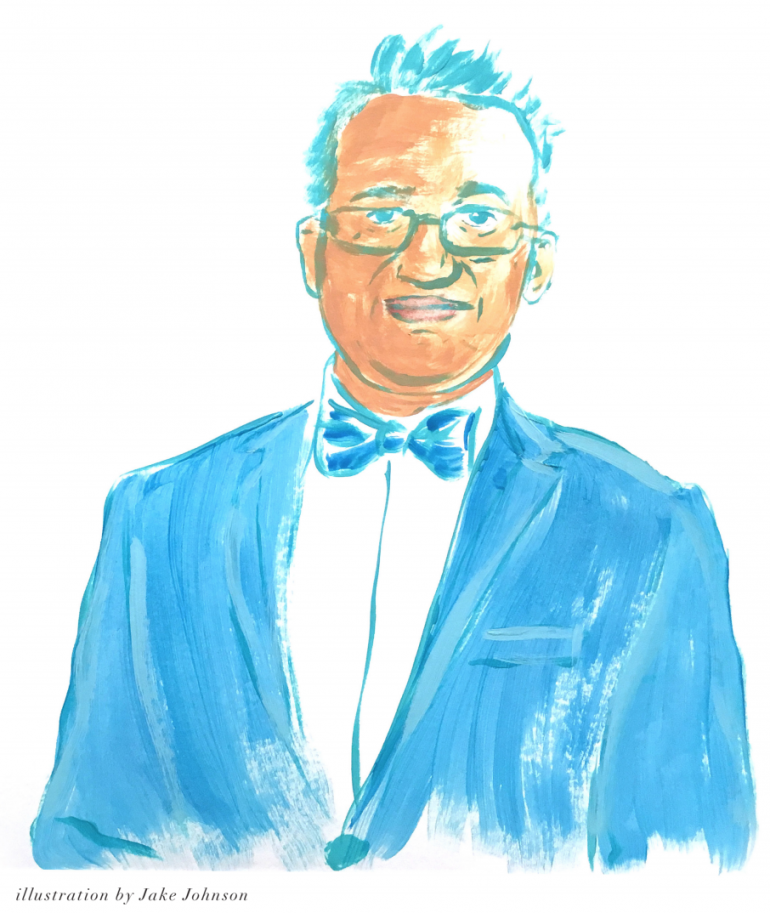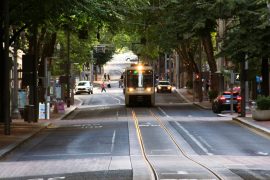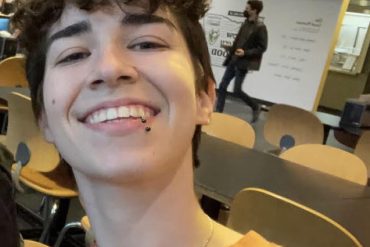The Stonewall Inn was run by a mafia outfit that notoriously watered down drinks, shortcut proper sanitation practices, blackmailed wealthy patrons, and bribed police officers into ignoring a multitude of law violations committed by the bar’s owners. On the surface, Stonewall was not the place one would choose for a night out. But despite this, The Stonewall Inn was massively popular. The reason? This dive bar offered something that could not be found in practically any other establishment of the time, including other gay bars: an inclusive space that fostered belonging and community.
In the era before the Stonewall Uprising, the queer community itself was severely fractured; the few places that catered to queer individuals were usually very specific about the kind of clientele that would frequent these establishments. Stonewall was unique in that lesbians, gay men, drag queens, transgender individuals, genderfluid people, and other queer identities all frequented the bar together. When an unidentified lesbian (probably Stormé DeLarverie) was being beaten and arrested by a host of Alice Blue Gowns (the police) during the infamous raid that sparked the uprising, she shouted out to the onlookers, “Why don’t you guys do something?” This was a unique moment because she was speaking to an audience representing a variety of queer identities, not just of identities similar to her own. This is perhaps the reason the influence of the Stonewall Uprising has had such longevity: It was a moment of unification that inspired queer individuals in the coming years to try fighting together as one community. This unification is a huge reason the LGBTQ rights movement has made such significant progress.
As a society, we would be remiss to forget that queer citizens of the United States, within the last century, have been subjected to: electroshock therapy; transorbital lobotomies; prejudiced legislation; legal discrimination in workplaces and housing markets; sexual-psychopath laws, which put LGBTQ individuals in prison or mental health hospitals; a slew of physical hate crimes; and the continued use of conversion therapies—still completely legal to practice, even on minors, in 35 states. In the face of such discrimination, creating a cohesive community was understandably difficult, and this difficulty still plagues many queer individuals. We see this even today as identities such as asexuality and bisexuality struggle for proper acceptance and representation. Luckily, activists like Arsham Parsi have dedicated their lives to creating queer communities in spite of such difficulties.
Arsham Parsi: building community in Iran
The attitudes against LGBTQ individuals in Iran are some of the most unforgiving in the world. For transgender individuals, Iran appears to be an outlier. The country recognizes binary trans identities and allows for gender reassignment surgery. However, Iranian society strongly discourages the openness of trans identities; trans people are expected to treat their transitions as something culturally surreptitious, and transgender individuals—especially those who are not cis-passing—are often discriminated against and ostracized, both socially and legally. While same-sex relationships have technically been illegal in Iran for some time, it was not until after the 1979 Iranian Revolution that legal punishments against homosexuality began in earnest. The Memorial in Defense of Human Rights project, which focuses on those who have died as a result of human rights violations in Iran, lists 140 individuals executed since 1979, whose charges included homosexuality. Nearly all 140 of these individuals were male, as the punishment for lesbian relationships is not corporal punishment, but rather public flogging—up to 100 lashes. In light of all this, creating queer communities might seem next to impossible, and that is exactly why the work of activists like Arsham Parsi is so important.
Arsham Parsi was born in Shiraz, Iran. With a history of high literature and world renowned gardens, Shiraz is a beautiful city, one which Parsi loves, and one to which he is afraid to ever return. When Parsi was 14, he read a book from his school library purporting to be about sex education. The book depicted homosexuality as an abominable sin. Realizing that the feelings and attractions described in the book applied to him, Parsi began attempting to rid himself of his homosexual feelings. This practice included isolation, strict religious devotion, and self-harm. In his autobiography, Exiled for Love, Parsi describes that period of his life: “I became obsessed with the idea of being stoned to death. I thought about it constantly…my [self-inflicted] punishments grew more intense and painful. I would bite my arms until I bled. Other times I would beat myself.”
When Parsi was in his early twenties, he discovered a fledgling Iranian queer community on the internet. In these early-internet chat rooms, Parsi was able to not only be himself with other gay men, but also work through the emotional turmoil of being a gay man in a severely anti-gay society. Upon discovering that some of the other chat room participants lived in Shiraz, Parsi took up the daring task of creating a small community of gay friends in the offline world. Consisting mostly of potluck dinners at someone’s home or simply meeting for coffee, this community stayed small and casual for sometime. However, after Parsi faced a tragic turning point in his life, he decided to use the internet chat rooms for an even greater good.
A close friend of Parsi’s—whose name was Arash—committed suicide after Arash’s family discovered that his long-time male friend was actually his romantic partner. The event left Parsi desperate to find an outlet for gay men to discuss and work through the secrecy, shame, and isolation plaguing gay individuals in Iran.
Parsi founded the Iranian Queer Organization (IRQO). The group used the internet to create safe, welcoming communities for queer individuals living in oppressive countries throughout the Middle East. The ultimate goal was to help individuals find friendship and community both online and, more importantly, offline. Unfortunately, the group’s very existence posed a threat to Parsi. In his autobiography, Parsi tells of an incident on his twenty-second birthday, during which the police raided his party. A family relative with connections to the police warned Parsi that the raid was going to happen, allowing Parsi to avoid both the party and his arrest. However, several of Parsi’s queer friends were in attendance, and were all arrested on suspicion of being homosexuals. Several of his friends were beaten while in police custody.
This incident began an intensification of police raids against queer community gatherings in and around Shiraz. Several arrestees testified to being interrogated by the police about the IRQO, and who was managing it. Because of increased police hostility, Parsi concluded that his presence in Shiraz, and even in Iran, was harming the very community he had worked so hard to create. Parsi met a trusted friend at a coffee shop in order to get help planning his escape into exile. Twenty-four hours after this meeting, he had fled Iran.
Parsi sought asylum in Turkey while waiting to be officially approved as a refugee. After many months, he was granted refugee status and sent to live in Canada. Despite Parsi being thousands of miles from his community, he once again recognized the potential of the internet to make positive changes in the lives of queer Iranians. Parsi recounts in his autobiography, “Almost daily I received desperate emails from people looking to leave Iran for reasons of safety and security.” These individuals, hopeful to become refugees, inspired Parsi to found The Iranian Railroad for Queer Refugees (IRQR). Since 2008, the Canadian based group has been assisting queer Iranians through the process of obtaining refugee status; it also provides financial assistance to queer Iranians waiting on refugee status who are unable to find work as asylum seekers. The organization also prioritizes connecting LGBTQ Iranians with other queer communities.
The same year IRQR was founded, Parsi’s other organization IRQO (later renamed the Persian Gay and Lesbian Organization), was awarded the Felipa de Souza Award for human rights activism. In 2015, Parsi was honored with the Pride Toronto Award for Excellence in Human Rights, and the Logo TV Trailblazer Award that same year. He continues to live in Canada.
The Importance of Community
In the 50 years since Stonewall, LGBTQ people have gained a lot more freedom to live their lives. While this freedom remains, at times, precarious, it nonetheless exists; remember, we don’t yet live in a world where all LGBTQ people around the globe know this level of freedom. But one of the greatest things that came out of the Stonewall Uprising was our ability to leave The Stonewall Inn behind. The Stonewall Inn was, after all, just a sleazy mafia bar. It matters to us today, because it happened to be frequented by some amazing people back then. Thanks in part to the efforts of the people at Stonewall, and those inspired by Stonewall, many (not yet all) queer individuals here in the U.S. now possess the opportunity to find community beyond the bars and nightclubs.
So as the possibilities of community continue to expand for LGBTQ individuals here in the U.S., it’s important to remember the part community has played throughout our history. The Stonewall Uprising, sparked by a police raid in the early morning of June 28th, 1969, was fueled by a desire to protect a space where outcasted people were finally able to create community with one another. Before there was a fight to claim and protect LGBTQ rights, there was a fight to claim and protect an LGBTQ community. Had there been no sense of belonging and solidarity among the patrons of The Stonewall Inn, it is likely the June 28th raid would have been another, standard police raid; what implications this would have had for the LGBTQ rights movement, it is difficult to say; but it’s much easier to shove one individual into a closet, than it is a united group determined not to go in.
We owe a lot to community. Arsham Parsi recognized this himself one New Year’s evening, when celebrating with his friends and family, a diverse community of allies and LGBTQ identities:
“I stood in the middle of the room and looked around at the festivities. Everyone was laughing and enjoying themselves, their current situation forgotten for one night…I smiled. This is what I had been working for.”
— Arsham Parsi





